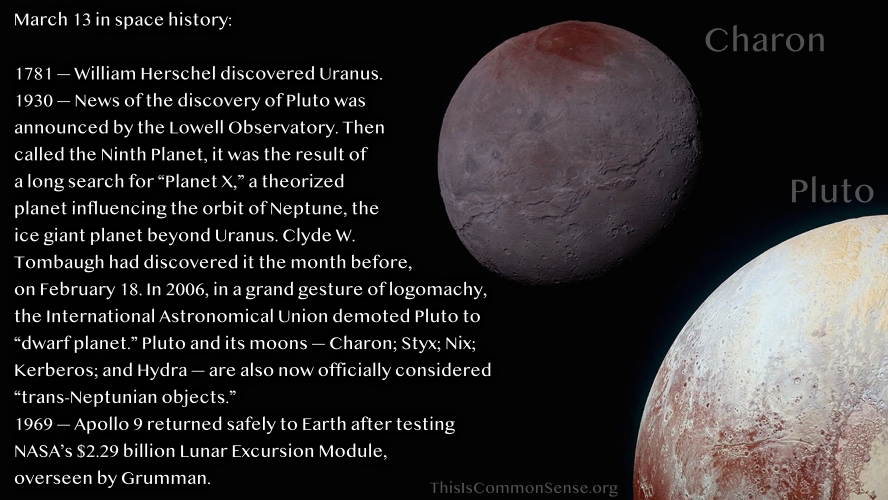1781 — William Herschel discovered Uranus.
1809 — Sweden’s King Gustav IV Adolf was deposed in the Coup of 1809, a political result of the disastrous Finnish War with the Russian Empire.
1814 — The Congress of Vienna declared Napoleon an outlaw following his escape from Elba.
1930 — News of the discovery of Pluto was announced by the Lowell Observatory. Then called the Ninth Planet, it was the result of a long search for “Planet X,” a theorized planet influencing the orbit of Neptune, the ice giant planet beyond Uranus. Clyde W. Tombaugh had discovered it the month before, on February 18. In 2006, in a grand gesture of logomachy, the International Astronomical Union demoted Pluto to “dwarf planet.” Pluto and its moons — Charon; Styx; Nix; Kerberos; and Hydra — are also now officially considered “trans-Neptunian objects.”
1969 — Apollo 9 returned safely to Earth after testing NASA’s $2.29 billion Lunar Excursion Module, overseen by Grumman.





